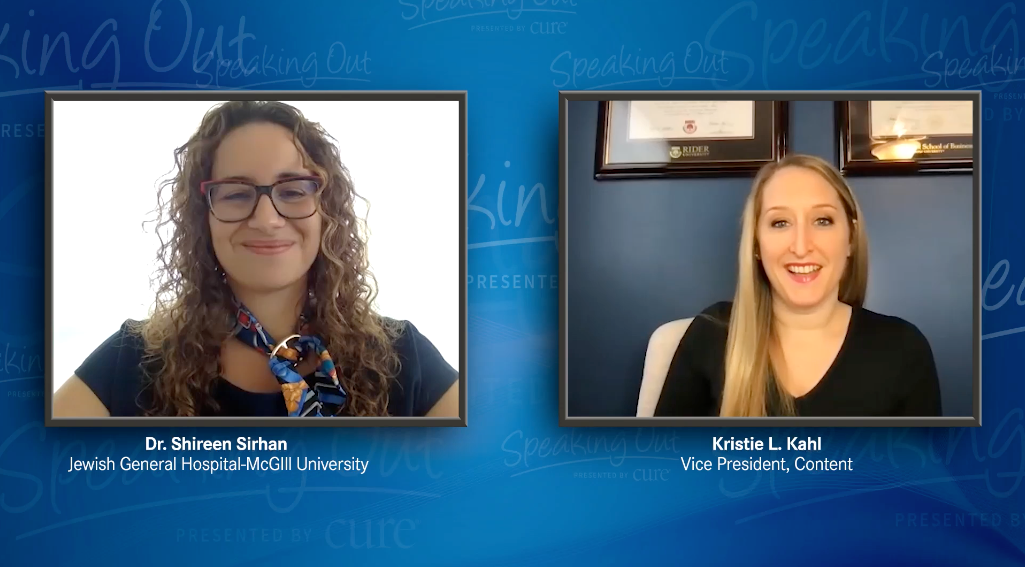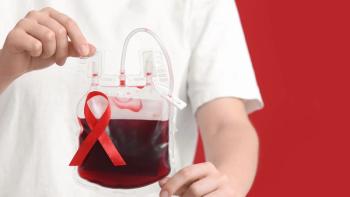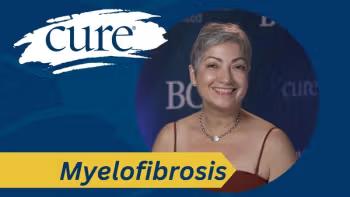
Expert Emphasizes Importance of Integrative Care, Well-Being in Long-Term Care of MPNs

On behalf of the Canadian MPN Research Foundation, CURE spoke with Dr. Pierre Villeneuve, from the University of Ottawa, about the long-term care of MPNs.
Kristie L. Kahl: Can you explain how MPNs have become more of a chronic disease in the cancer space?
Dr. Pierre Villeneuve: So MPNs have always been a chronic disease, and sometimes distinguished as a more aggressive type of cancer. So often, patients with MPNs will have either a normal life expectancy with very little symptoms. And of course, there's people who will have a much more aggressive disease. (It’s important) to recognize that investment of time patients will have the disease for decades. It has an impact on how are we going to manage these diseases, we have to have a broader perspective, then just say, well, we're going to manage disease, we're going to cure the patient, because most of the patient we don't cure. But we certainly can prevent lots of the long-term complications. And we certainly can improve in a very significant and meaningful fashion quality of life. So I think that's where we have to have a broader and more very holistic approach to the management of a patient with MPNs.
Kristie L. Kahl: Why is it key to ensure that patients are taking care of themselves outside of their treatment?
Dr. Pierre Villeneuve: So in the case of MPNs, in particular, for the essential thrombocytopenia or polycythemia vera, or even with myofibrosis, one of the biggest complications we want to prevent, in the mid to long term, vascular complications or strokes, heart attack, or blood clots. So, if you have one of these complication, they really can affect not only your life, your quality of life, but potentially your life expectancy, but it can leave patients with some disability. So it is crucial to do what we can to minimize the risk. So of course, we have some treatments but there's lots of things other than that, that patients can do and physicians can advocate and help managing lifestyles, diet and managing the other comorbidities. So oftentimes liaising with the other specialists or family doctor to make sure that the cholesterol is well controlled, that diabetes is well managed is absolutely key. And it is important whenever the patients are being seen by their health care team at the MPN clinic that they these different topics are being addressed.
Kristie L. Kahl: How can we implement integrative care into the treatment approach then with this?
Dr. Pierre Villeneuve: I think it's at least my approach to have that as a checklist. So when we see people with MPNs, depending on the state of their disease, or the expected symptoms will be different. So, for instance, somebody who's got polycythemia vera will typically ask symptoms about the providers or the itchiness. Symptoms of erythromelalgia pain in their hands or fingers, but also ask about symptoms related to the screen size. So, I think to systematically ask about those is helpful. But also ask questions about and measure the blood pressure, but also ask questions about the management of the diabetes and blood pressure and make sure there's no other new medical concerns, again, because you've got a perspective of this patient being alive in five years, 10 years from now, so you want to prevent or in a way you don't play the role of the doctor, but you have to kind of ensure that all the preventable disease are in as much as possible taken care of.
Kristie L. Kahl: How does diet and nutrition play a role to in kind of that long term care?
Dr. Pierre Villeneuve: I'm glad you asked. Because, you know, one thing that I find is that patients, one of the first things they ask when they get a diagnosis, is why me and often the what of the answer is it's bad luck. But there are things patients can do, some cannot cure the disease, for the most part. But certainly, by modifying risk factors, and through diet and exercise, you actually go a long way and in multiple ways, not only if you have a healthy diet. So you know, if you eat some unprocessed food, on saturated fat, no trans fat, for instance, or a well-balanced diet that comprises fruits and vegetables, you're probably going to be healthier, feel better, you're less likely to be overweight, your energy is better. And that will basically give you a better quality of life.
The same way, exercises will go a long way in making you feel better, give you a better quality of life, reduce anxiety, help with your sleep. Other aspects that are important are to reduce alcohol consumption. You don't have to be abstinent. But certainly, to have a moderate alcohol consumption is probably better for everyone, including for patients with MPN. And reducing or stopping smoking is also better. All of these aspects will empower patients and will have an impact on their quality of life will have an impact on how they feel about themselves, and will decrease the chance of them having vascular complications, which is a big deal. It's also if ever they need more aggressive treatment, they will be stronger and more able to tolerate treatment, including a bone marrow transplantation, if they're a better fit.
Kristie L. Kahl: What's your biggest piece of advice for patients to make sure that they are having good well-being throughout their cancer journey?
Dr. Pierre Villeneuve: I think it's important that they are informed about that, right. So that's part of the role of the health care team to naturally open discussion and not just focus on the diagnosis and specific MPN symptoms. But really to ask questions, when patients see that the physician asking about, you know, the diet, then they have a sense, that's important. So if you have that discussion, about diet, exercise, alcohol smoking, then you're basically telling your patient this is important. And this is something you can do something about and it's up to the patient to some extent, to decide what to do about that.
I think it is important for patients to realize that it is important to ask questions, often people will ask, “Okay, what about this health supplement? What about this type of exercise?” And I think it's helpful for them to have the discussion with their physician and nurse so that they can have a sense of what's realistic, what's possible. So it's not the expectations, not that people will train for the Olympics, the expectation is that they can have a decent level of exercise that will help with their overall well-being and improve their health. Likewise, for the diet, you're not expecting people to become pure vegetarian and have a holy diet. We're talking about people who have a healthy diet, which is realistic, but sometimes people don't know what that means. And that's fair enough. Why does she have a health care provider? They can, they can be helpful. They'll be happy to do that.




